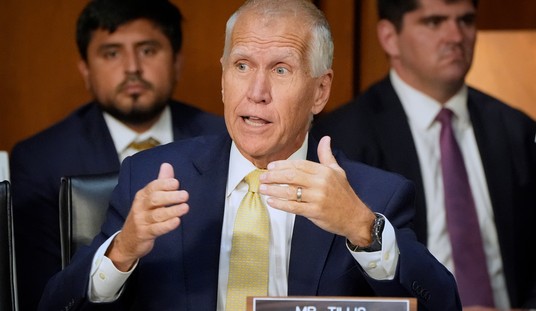Monica Lewinsky spoke recently to young entrepreneurs and achievers at Forbes’ 30 Under 30 Summit in Philadelphia about her sex scandal with the President of the United States and about how her life was forever altered by the experience.
Sixteen years ago, fresh out of college, a 22-year-old intern in the White House — and more than averagely romantic – I fell in love with my boss in a 22-year-old sort of a way. It happens. But my boss was the President of the United States. That probably happens less often.
Now, I deeply regret it for many reasons. Not the least of which is that people were hurt. And that’s never okay.
But back then, in 1995, we started an affair that lasted, on and off, for two years. And, at that time, it was my everything. That, I guess you could say, was the golden bubble part for me; the nice part. The nasty part was that it became public. Public with a vengeance.
Lewinsky, now 40, wrote in Vanity Fair in May that although the affair was consensual, nothing could have prepared her for the aftermath, when attacks came from seemingly every direction:
Sure, my boss took advantage of me, but I will always remain firm on this point: it was a consensual relationship. Any ‘abuse’ came in the aftermath, when I was made a scapegoat in order to protect his powerful position. . . . The Clinton administration, the special prosecutor’s minions, the political operatives on both sides of the aisle, and the media were able to brand me. And that brand stuck, in part because it was imbued with power.
Monica’s bad and immoral decision — every salacious detail of it — was published on the internet:
Now, my brother – and all his fraternity brothers – were privy to my most intimate details. As were my dad and his fellow doctors. And my stepdad, and his World War 2 war buddies. My stepmom and her knitting circle. Even both my grandmothers, then in their 80s, knew about the internet. My whole family. My friends. My friends’ parents. My parents’ friends.
All of this left Hillary Clinton — the supposedly great defender and protector of all women everywhere forever and ever Amen– in a terribly awkward position. She knew her husband was a serial philanderer. Six months earlier Kathleen Willey had accused Bill Clinton of sexual assault and there was also the 12-year affair with Gennifer Flowers and another with Paula Jones and probably others. But Mrs. Clinton had a presidency to save and her own political future to think about so there wasn’t a lot of time to think about a 22-year-old young woman who had been taken advantage of by the most powerful man in the universe. Feminism and all the implications of what it really means to defend the rights of women and that whole glass ceiling business would have to wait.
In public Hillary played the victim. She appealed to viewers of the Today Show on her husband’s behalf, blaming the “vast right wing conspiracy” for all the scandals plaguing his presidency.
Behind the scenes, Hillary was the mean girl.
In the recently released papers of Diane Blair, whom Hillary Clinton described as her “closest friend,” Hillary comes across not as a feminist icon, not as a champion of women, not even as a mother with an ounce of compassion for the young woman her husband “took advantage” of (in Monica’s words). Instead, Mrs. Clinton practically excuses her husband’s behavior and blames Lewinsky for the fallout after the affair.
“It was a lapse, but she says to his credit he tried to break it off, tried to pull away, tried to manage someone who was clearly a ‘narcissistic loony toon’; but it was beyond control,” wrote Blair of Hillary’s response to her husband’s affair with Lewinsky.
“HRC insists, no matter what people say, it was gross inappropriate behavior but it was consensual (was not a power relationship) and was not sex within any real meaning (standup, liedown, oral, etc.) of the term.”
There are several other instances in the Blair Papers of Hillary Clinton ridiculing and demeaning women who had been sexually harassed. She even at one point dismisses grassroots groups who were seeking to expand women’s rights because “those grassroots groups didn’t count for much; it was the DC groups who would be doing damage.”
And, of course, there was the 27-year-old Hillary Clinton who secured a plea deal for a man who raped a 12-year-old girl. The Washington Times released a tape earlier this year of Hillary cackling as she was interviewed about the case. Hillary suggests in the interview that she knows the man was guilty. Nevertheless, part of her strategy for winning the case involved smearing the victim — calling her a liar.
The victim told the Daily Beast,
“Hillary Clinton took me through Hell,” and called her out for her hypocrisy. “I would say [to Clinton], ‘You took a case of mine in ’75, you lied on me… I realize the truth now, the heart of what you’ve done to me. And you are supposed to be for women? You call that [being] for women, what you done to me? And I hear you on tape laughing.”
There seems to be a strange disconnect between the public Hillary and the private Hillary, especially on women’s issues.
All of this leaves me wondering what Hillary Clinton would have told her daughter if she had been in Monica Lewinsky’s position. Would she have fought for her daughter’s right to be left alone? Helped her to navigate the media? Advised her to sue the pants off of President Clinton? Or would she have told her daughter to just take it? Be the national punching bag for the greater good of getting Run-Around Bill re-elected. Does Hillary’s version of feminism really have no better answers for these situations than to shush the women and tell them to know their place?
According to an article in The Hill last month, Hillary Clinton is putting women’s issues at the center of her likely presidential campaign, saying she has “called for a ‘movement’ to help women at work, arguing that women face not only a ‘glass ceiling’ but a floor that could collapse underneath them, erasing the gains made to win equality between the sexes.”
Tracy Sefl, a senior adviser to Ready for Hillary, told The Hill that, “at every turn Hillary Clinton demonstrates that the advancement of the rights and opportunities for women and girls is central to who she is.”
“This isn’t a side issue, this isn’t a one-off,” Sefl said. “As she says, this is ‘our great unfinished business.’”
As is typical of today’s illiberal progressives, it seems completely reasonable to abide such cognitive dissonance. And collateral damage for the greater good is tolerated — even celebrated — as part of the game plan. If you have to throw a few young interns under the bus, so be it.











Join the conversation as a VIP Member